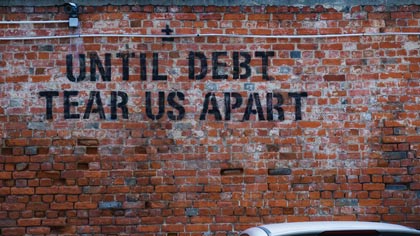This is article 1 of 7 in the Common-Sense Financial Principles series.
“A loaf of bread, a container of milk, and a stick of butter.” It’s more than 40 years since I heard this line on Sesame Street and the lesson learned is a great way to help you stick to your budget.
One of the characters was heading to the store to collect a few items. They used the power of repetition to re-state several times what they needed to buy.
It worked and it still sticks in my mind today when I think about the power of setting an intention or a goal, and then taking action to achieve it.
Most of us have experienced that making a list works. We do it with our shopping list. And with our fitness, sporting, or academic goals. However, when it comes to our financial goals we don’t always use this proven technique.
For money matters, a written budget makes a powerful difference.
Being intentional makes our life better, but many people don’t like the idea of building a budget.
Let’s get some budgeting benefits on the page (to dispel some pesky myths).
[1] A budget gives you freedom and control – after all you’re the one who is writing it.
[2] A budget allows my partner and I to be on the same page – it reduces money conflict.
[3] A budget gives you a benchmark to measure against – newsflash, you will not be perfect, and that’s ok.
Put simply, a budget allows you to allocate a mission to every dollar that will arrive in your next pay. Just like any team you’ve ever worked in, or played with, if you don’t have a game plan then you’re failing to optimise the performance of your team and you’re leaving success up to pure chance.
Money matters are too important (and painful) to adopt a “she’ll be right” attitude.
Forming the habit of developing a written budget before your pay arrives will help you win with money.
It is perfectly ok to be imperfect. Just formulate a budget and get started. You can recalibrate as you go and feel confident that any budgeting ‘mistake’ is unlikely to cause a big problem. Certainly, you’ll be in a better place by having a budget rather than just winging it.
How does budgeting make you feel? Would you like help with that?
Let’s schedule a Zoom chat to talk about how you can move forward today.





